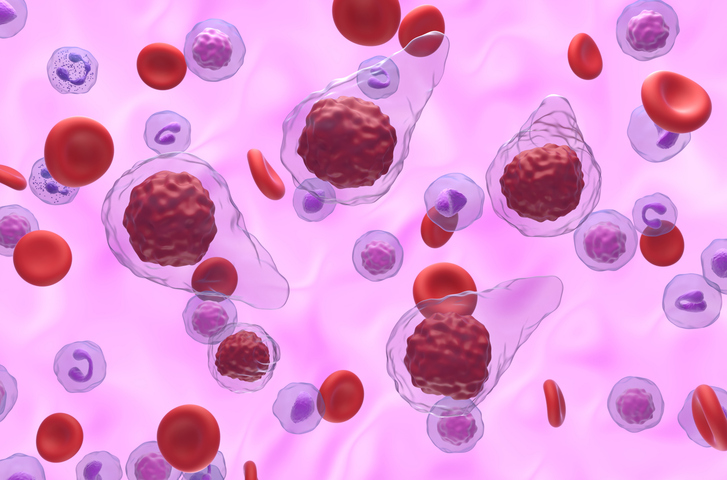
A retrospective study out of the Medical University of South Carolina examined real-world outcomes of momelotinib (MOM) and pacritinib (PAC) in patients with myelofibrosis (MF) and cytopenias from January 2022 to May 2024.
The drugs, recently approved by the US Food and Drug Administration for patients with MF and anemia (MOM) or thrombocytopenia (PAC), were assessed for efficacy, safety, and reasons for treatment discontinuation. The study was presented at the Society of Hematologic Oncology 2024 Annual Meeting in Houston, Texas.
The study included 28 MF patients (median age, 75.2 years); 53.6% were female and 46.4% had secondary MF. Most patients (78.5%) had previously received a Janus kinase inhibitor, with ruxolitinib being the most common. Cytopenias were the primary reason for switching to MOM/PAC (n = 19). The study reported a median treatment duration of 5.1 months, with 16 patients continuing treatment at the last follow-up.
Patients showed a slight but nonsignificant increase in hemoglobin (9.6 g/dL from 8.9 g/dL) and platelet counts (137 x 10⁹/L from 130 x 10⁹/L) three months after treatment. More notably, red blood cell transfusion requirements dropped from 53.6% to 33.3% after patients started MOM/PAC.
Adverse effects were generally manageable, with diarrhea being the most common (n = 8). Five patients required dose reductions, and treatment discontinuation due to toxicity was low, at only 10%. The most frequent reasons for stopping treatment were adverse events (n = 3) and allogeneic transplantation (n = 3).
Reference
Medawar G, Baratam P, Green K, et al. Myelofibrosis treatment beyond ruxolitinib: a single-center experience with momelotinib and pacritinib. Abstract #MPN-220. Presented at the Society of Hematologic Oncology Annual Meeting; September 4-7, 2024; Houston, Texas.






 © 2025 Mashup Media, LLC, a Formedics Property. All Rights Reserved.
© 2025 Mashup Media, LLC, a Formedics Property. All Rights Reserved.